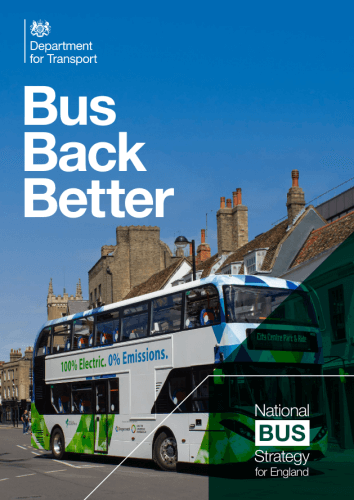The Confederation of Passenger Transport (CPT) has revealed that there is a significant funding gap in the Government’s National Bus Strategy
New analysis has shown a funding gap of over £5bn between plans by local authorities and bus operators to improve services and available Government funding.
To deliver the National Bus Strategy, local authorities and bus operators were tasked with drawing up Bus Service Improvement Plans (BSIPs) to set out how, with Government funding, they would work together to transform bus services. An analysis of these plans by the CPT, which include measures to introduce new ticketing and fare initiatives as well as plans to make bus journeys quicker and more reliable, has shown that well over £7bn could be needed to deliver the plans. This is significantly more than the funding announced at last month’s Spending Review.
As a result, without further funding from Government, the CPT believes that the ambitions of most BSIPs will go unfulfilled with the available funding only sufficient to transform a small number of places outside of major cities.
Commenting on the analysis, CPT Chief Executive Graham Vidler said: “The National Bus Strategy challenged local authorities and bus operators to set out jointly how they would transform bus services. They have risen to this challenge and produced ambitious plans right across the country, focusing on new fare and ticketing initiatives, investment in measures to make the bus more reliable, improved facilities for passengers and new zero emission buses. The scale of this ambition will not be met though with the funds that were announced at the Spending Review. Current funding is likely to be able to transform bus services in only a small number of places, including our major cities, but the vision of the National Bus Strategy was rightly much greater.”
The CPT is calling on the Government to ensure that it uses some of the available funding to deliver nationwide price capped multi operator ticketing, which will make it easier for passengers to ensure they are getting the best value fares, and to ensure funding is made available to maintain services as passenger numbers continue to recover.
Graham continued: “There are tough choices ahead, but we believe that, wherever they live, all passengers should benefit from at least some improvements next year. This means ensuring that all areas have funding from April 2022 to maintain services so that nowhere goes backwards in its bus provision. It should also mean a national approach to delivering multi-operator price capped ticketing, a feature in almost every BSIP and one which can be delivered more cost-effectively if delivered centrally.”


